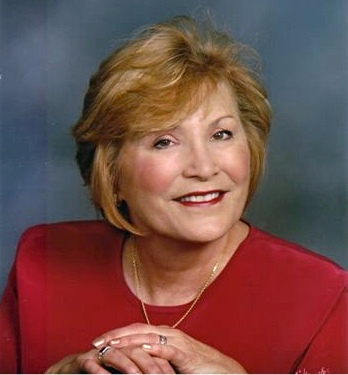
I love the strategic thinking and constant adapting to change with the ultimate goal to help provide better patient care.
1. What led you to the mission of Senior National Accounts Manager, Elsevier?
For decades, I have been a medical equipment sales representative. Most everyone has been in a hospital, be it a patient or a visitor. If you look around, everything in the hospital has been purchased from a sales representative from the most basic (chairs and computers) to the most complex, like CT Scanners, MRI equipment and everything in-between. I sold different kinds of equipment used in heart surgery and eye surgery for 22 years. In the 1990’s I decided to go back to school part time at night with the thought of changing careers to be a psychotherapist. I earned a Masters Degree in Social Work at Washington University. I loved graduate work! My idea of a perfect day was sitting in the library researching a paper. I especially loved learning how to evaluate outcomes of therapeutic interventions.
While I was still in school, I had the opportunity to leave medical device sales and enter into the new field of selling online information to hospitals. My graduate school research experience coupled with all my hospital sales experience culminated into a job where I could use both of these unique perspectives to become very successful in what was an emerging field: providing online information to clinicians.
Let me explain. Those who treat patients need information. Most people think that physicians, nurses and pharmacists learned everything they needed to know in graduate school. However, the amount of information and new research is coming so fast that the human mind cannot remember it all. For example, in 1989 there were about 2,800 medical journals published. By 2009 that number had grown to over 5,000. In 1989 there were 376,000 articles; that grew to 623,000. Furthermore, research methods and new technology continues to become more sophisticated so the ways of treating and diagnosing disease changes. While research can determine what works the best (called Evidence Based Medicine for doctors and Evidence Based Practice for nursing) it takes a long time to get new research disseminate and have clinicians adapt the changes for their patients. In fact, research has shown that it takes about 17 years for a new treatment to be adopted by all physicians. What this means is that there many patients being treated in the wrong way. This, coupled with human mistakes creates a health system in the United States that is neither cost efficient nor the best for health outcomes. Other countries have adopted electronic health systems and evidence based medicine faster than we have been able to do.
I work for Elsevier, the largest science, technology and medicine publisher in the world. We publish thousands of books and journals and sell them to libraries around the world across all the sciences. In particular, my division sells medical information to hospitals and medical schools. This information is accessible on the internet from anywhere, including the hospital’s electronic health record. When a hospital licenses our content they help impact patient outcomes. It is a win-win for all: the hospital, the doctor and the patient.
2. What does this mission mean to you?
I am able to impact the overall health care in the US. I am challenged to think strategically every day as I work to bring the right mix of resources to my customers as well as communicate with our management as to how we can even be better at what we do. Our resources are constantly improving to make them better and faster to find answers across the sheer volume of information available to the end user doctor, nurse or pharmacist. I particularly enjoy presenting our resources at physician meetings because they become so enthusiastic when they see how fast they can answer their clinical questions with our resources. I love the strategic thinking and constant adapting to change with the ultimate goal to help provide better patient care.
3. What was your best day as a Senior National Accounts Manager, Elsevier?
I worked for quite some time on a large health system. I collaborated closely with the top leadership. In fact, we had such a collegial and consultative relationship, I became confidant to their internal goals and matched them with what we could do for them within their financial constraints. I will never forget the call that the board unanimously approved a system wide license for all 45 hospitals across medicine, nursing and pharmacy resources for 5 years, displacing a competitor. It was the largest single sale for Elsevier in my division. Over the next few months we worked really hard to make the launch go flawlessly and it did. They are a wonderful customer and remain a stellar reference for what we can do in a very large and complex system of hospitals. And, their staff is ecstatic to have such good resources to treat their patients.
4. What was your worst day as a Senior National Accounts Manager, Elsevier and how did you survive?
About 5 years ago, I found out that I had disappointed a significant customer in a very big way. I was devastated since I pride myself on keeping my customers very happy. And, while inside I believed that there was culpability on the customer’s side, I took complete ownership of the problem and I worked hard over the following year to restore the relationship. Over time we mended the fences and all turned out well.
- « Previous person: Sharon Aylward
- » Next person: Florence Kramer